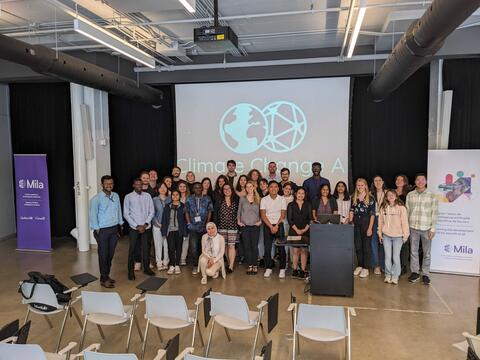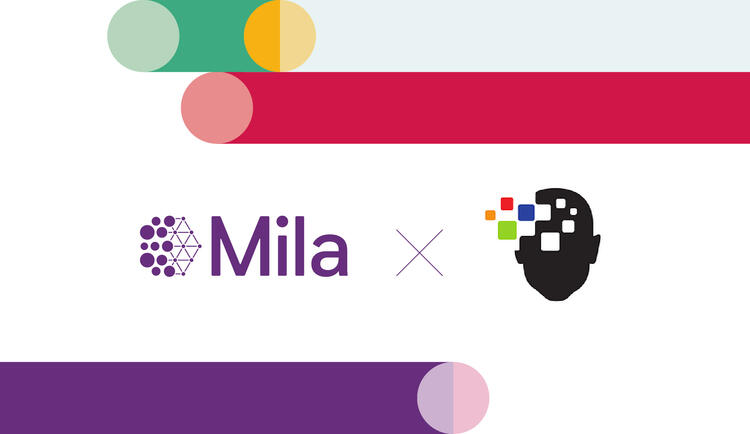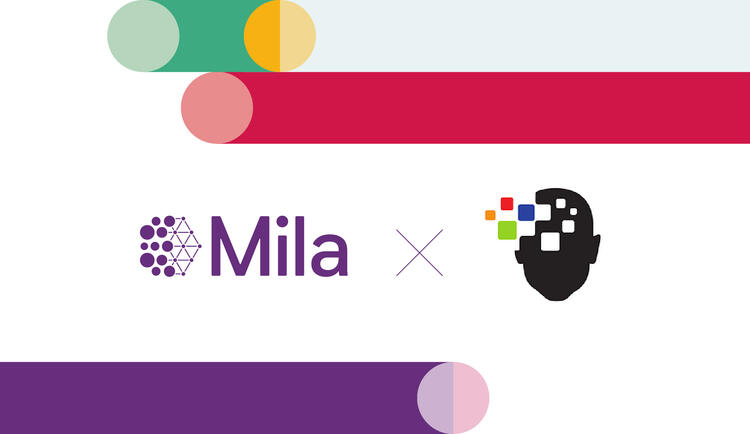
In August 2023, Mila hosted the first in-person Climate Change AI Summer School organized by Climate Change AI (CCAI), a nonprofit co-founded by Mila Core Academic Member David Rolnick whose mission is to catalyze impactful work at the intersection of climate change and machine learning.
The first part of the Summer School, entirely virtual, was attended by thousands of people (videos of the lectures are available on CCAI’s website). Following this, 27 participants from 19 different countries were selected to attend the in-person event at Mila in Montreal.
Coming from diverse backgrounds in machine learning, engineering and climate science, they formed working groups and began collaborating virtually.
Then, over the course of a week, they all gathered at Mila to finalize a wide range of projects exploring how artificial intelligence (AI) can help tackle climate change-related challenges.
Participants explored how AI can help optimize crop yields in an uncertain climate, better predict precipitation and catastrophic events such as floods, or even optimize electricity consumption and storage. On the final day, they had to present their projects to an audience of peers, investors and academics.
Erick Kapp, Educational Events Coordinator at CCAI, said the Summer School was created with two goals in mind: to develop relationships between people within the cohort, in the hope that they will continue to work on projects together, and to develop leaders in the field of climate change and AI.
Beyond teaching participants how machine learning methods can help tackle the climate crisis, “we really wanted to teach participants how to communicate effectively, how to present their ideas to people who aren't necessarily technical” to ensure that “their work doesn't just stay stuck as research but can actually be implemented into the real world,” he explained.
“It was a huge success, and there is definitely a lot to build on”.
Donna Vakalis worked on a project harnessing machine learning techniques to optimize electricity consumption and storage for homes drawing power both from the grid and from solar panels, and is now continuing the project with other participants.
A postdoctoral researcher at Mila, she is working on ways to use AI to decarbonize building and has enjoyed networking and sharing ideas with her peers in person.
“We all have our little niche, but there are often so many transferable ideas that are out there that you can only get by being exposed to those ideas. There's just enough similarity and just enough differences to make things super interesting and have a really nice cross-pollination of ideas,“ she said.
“We worked really hard, but because everyone was in such a good mood, it didn't feel like we were working so hard.”




